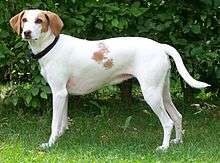Definify.com
Webster 1913 Edition
Cane
Cane
The flying skirmish of the darted
Cane
Webster 1828 Edition
Cane
CANE
,CANE
,Definition 2026
cane
cane
English
Noun
cane (countable and uncountable, plural canes)
- To do with a plant with simple stems, like bamboo or sugar cane.
- (uncountable) The slender, flexible main stem of a plant such as bamboo, including many species in the grass family Gramineae.
- (uncountable) The plant itself, including many species in the grass family Gramineae; a reed.
- (uncountable) Sugar cane.
- 1907, Harold Bindloss, chapter 7, in The Dust of Conflict:
- Still, a dozen men with rifles, and cartridges to match, stayed behind when they filed through a white aldea lying silent amid the cane, and the Sin Verguenza swung into slightly quicker stride.
-
- (US, Southern) Maize or, rarely, sorghum, when such plants are processed to make molasses (treacle) or sugar.
- The stem of such a plant adapted for use as a tool.
- (countable) A short rod or stick, traditionally of wood or bamboo, used for corporal punishment.
- (uncountable) Corporal punishment by beating with a cane.
- The teacher gave his student the cane for throwing paper.
- A lance or dart made of cane.
- John Dryden (1631-1700)
- Judgelike thou sitt'st, to praise or to arraign / The flying skirmish of the darted cane.
- John Dryden (1631-1700)
- A rod-shaped tool or device, somewhat like a cane.
- (countable) A strong short staff used for support or decoration during walking; a walking stick.
- After breaking his leg, he needed a cane to walk.
- 1905, Baroness Emmuska Orczy, chapter 2, in The Ayrsham Mystery:
- The cane was undoubtedly of foreign make, for it had a solid silver ferrule at one end, which was not English hall–marked.
- 1913, Joseph C. Lincoln, chapter 10, in Mr. Pratt's Patients:
- Men that I knew around Wapatomac didn't wear high, shiny plug hats, nor yeller spring overcoats, nor carry canes with ivory heads as big as a catboat's anchor, as you might say.
- (countable, glassblowing) A length of colored and/or patterned glass rod, used in the specific glassblowing technique called caneworking.
- (countable) A long rod often collapsible and commonly white (for visibility to other persons), used by vision impaired persons for guidance in determining their course and for probing for obstacles in their path.
- (countable) A strong short staff used for support or decoration during walking; a walking stick.
- (uncountable) Split rattan, as used in wickerwork, basketry and the like.
- 1963, Margery Allingham, chapter 1, in The China Governess:
- The half-dozen pieces […] were painted white and carved with festoons of flowers, birds and cupids. […] The bed was the most extravagant piece. Its graceful cane halftester rose high towards the cornice and was so festooned in carved white wood that the effect was positively insecure, as if the great couch were trimmed with icing sugar.
-
- A local European measure of length; the canna.
Synonyms
- (the slender flexible stem of a plant such as bamboo): stem, stalk; (of a tree) trunk
- (the plant itself): reed
- (sugar cane): molasses cane
- (A short rod or stick, traditionally of wood or bamboo, used for corporal punishment): switch, rod
- (corporal punishment by beating with a cane): the cane, a caning, six of the best, whipping, cuts
- (strong short staff used for support during walking): staff, walking stick
- (a long rod often collapsible): white cane, blind man's cane
Derived terms
|
|
Translations
|
|
|
|
|
Verb
cane (third-person singular simple present canes, present participle caning, simple past and past participle caned)
- To strike or beat with a cane or similar implement.
- (Britain, New Zealand, slang) To destroy.
- (Britain, New Zealand, slang) To do something well, in a competent fashion.
- (Britain, slang, intransitive) To produce extreme pain.
- Don't hit me with that. It really canes!
- Mate, my legs cane!
- (transitive) To make or furnish with cane or rattan.
- to cane chairs
Translations
|
Anagrams
French
Etymology
From Middle French cane (“duck, female duck", lit. "floater, little boat”), from Old French cane (“boat, ship", also "waterbird”), from Middle Low German kane (“boat”), from Proto-Germanic *kaną (“boat, vessel”). Cognate with Norwegian kane (“swan-shaped vessel”), Dutch kaan (“boat”), German Kahn (“boat”), Old Norse kæna (“little boat”), and possibly Old Norse knǫrr (“ship”) (whence also Late Latin canardus (“ship”), from Germanic; and Old English cnearr (“merchant ship”)). Related to French canot (“little boat”).
Noun
cane f (plural canes)
- duck (female duck)
Related terms
Anagrams
Italian

Pronunciation
- IPA(key): /ˈkane/
Etymology 1
From the Latin canis, canem, from Proto-Italic *kō (accusative *kwanem), from Proto-Indo-European *ḱwṓ (accusative *ḱwónm̥). Compare Portuguese cão.
Noun
cane m (plural cani, feminine cagna)
Derived terms
See also
Adjective
cane (invariable)
Etymology 2
Noun
cane f
- plural of cana
Anagrams
Latin
Verb
cane
- second-person singular present active imperative of canō
Noun
cane
- ablative singular of canis
References
- CANE in Charles du Fresne du Cange’s Glossarium Mediæ et Infimæ Latinitatis (augmented edition, 1883–1887)
- cane in William Smith., editor (1854, 1857) A Dictionary of Greek and Roman Geography, volume 1 & 2, London: Walton and Maberly